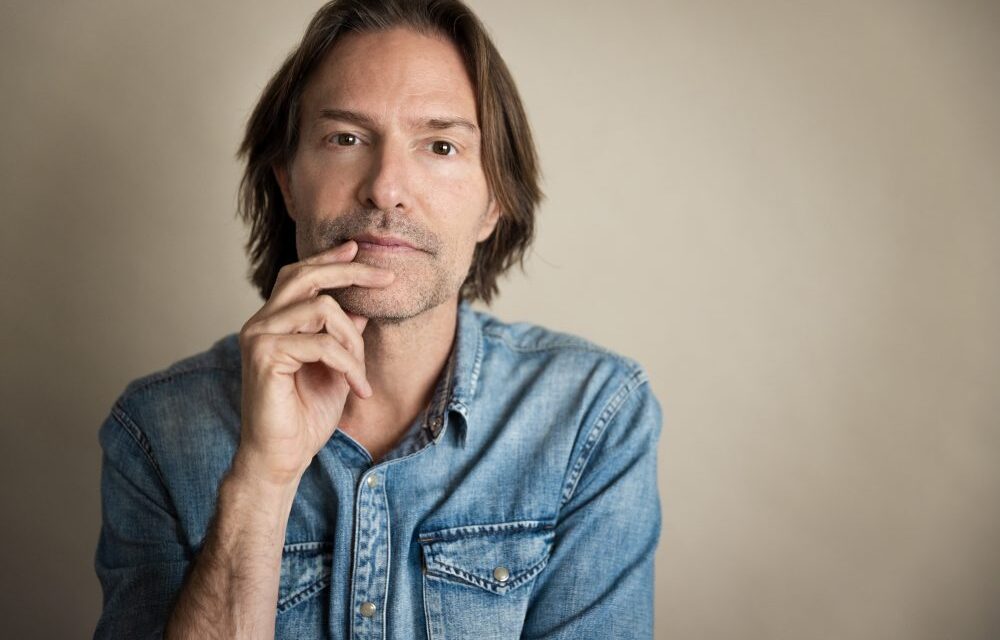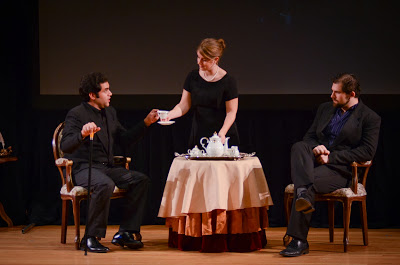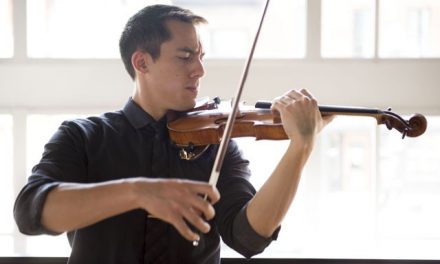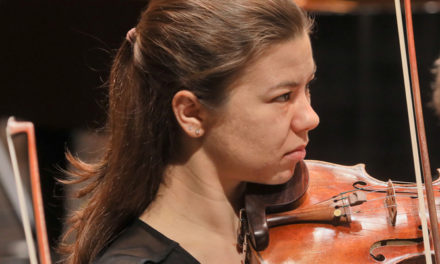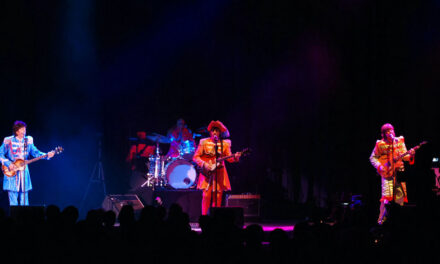Composer/conductor Eric Whitacre. Photo: Marc Royce
Mozart Requiem
Louisville Orchestra
Eric Whitacre, conductor
Kent Hatteberg and the Louisville Chamber Choir, Guest Choir Director and chorus
Jessamyn Fry, cello soloist
Vocal soloists: Laurence Servaes, soprano, Marybeth Hamilton, mezzo-soprano, Ricky Case, tenor, Kyle King, bass
A review by Annette Skaggs
Entire contents are copyright © 2024 by Annette Skaggs. All rights reserved.
In the long-standing allure and reach of commissioning and performing works by living composers, the Louisville Orchestra has presented some fantastic works by the likes of John Williams, Michael Tilford Thomas, Carlisle Floyd, and of course our composers from the Creative Corps, and Teddy Abrams.
A few of the names I listed have placed their talented selves upon the podium to direct and lead our seasoned orchestra with their creations, and this past weekend we were able to add another to the growing parade of living composers/conductors to have graced our halls.
If you are unfamiliar with Eric Whitacre, get thee to streaming or find an actual record store as soon as possible. While not a new kid on the block, per se, his music is permeating itself in musical programs worldwide at a steady clip. And with good reason. Based on the three works heard in this performance I am certain you will want to delve deeper into his catalog.
Lux Aurumque (Light and Gold) is based on a Christmastime poem by Edward Esch that speaks of the heavenly choir of angels who sing to the newborn Christ Child. Using the Charles Anthony Silvestri translation of the poem the Louisville Chamber Choir did a beautiful job of articulating the text and attacking the complexity of the composition. This piece goes far beyond a typical Christmas hymn and feels as though it was composed with a full oratorio in mind, a la Handel’s Messiah.
In his introduction to his next composition, The River Cam, Whitacre speaks of his time studying in Cambridge, England, and how this work brings him back to the waters that flowed nearby. Jessamyn Fry’s cello work is certainly subtle and our orchestra keeps itself from flooding the tranquil waters.
The third arrangement of the evening perhaps allowed the audience to delve even deeper into Eric Whitacre’s range of talent.
Upon learning of a dear friend’s wife succumbing to a terminal illness, Whitacre suggested that he write about his wife, their meeting, their friends, their family and life, the illness and the struggle that ensued, and life after the loss. His friend wrote a poem to this theme and before you could bat an eye, a composition was born from the words. Selections from The Sacred Veil tells the story of Anthony and Julie Silvestri in a profoundly soulful and sobering way.
The other Whitacre selections of the evening included: In a Dark and Distant Year, Home, I am Afraid, I Am Here, Delicious Times, Pray Hard, and Child of Wonder. I cannot say enough about the whole of what we heard that evening, other than I will be looking for all twelve movements of this moving arrangement.
Using the whole of the orchestra and SATB choir, the depth of musicality that is woven into this work is impeccable, towering, and emotionally devastating. Tears were streaming down many audience members’ faces by the end of the piece. The words projected overheard while our choir sang only added to the intensity and importance of the music.
Whitacre shared that he had long wanted an opportunity to conduct one of the most important pieces of music in recorded history: Mozart’s Requiem. This requiem mass has long been a topic of scholarly discussion as we know Mozart did not complete the mass, only getting as far as the Lacrimosa found in Section III: Sequenz. The contention is over who finished the rest of the Mass for the Dead. Was it Franz Xaver Süssmayr or even Constanze, Mozart’s wife? Musicologists and historians have landed on Süssmayr and his use of “scribbles” that Mozart had for the other movements of the Mass, save for Sanctus, Benedictus, and Agnus Dei he claimed as his own.
The Requiem in D Minor, K. 626 is highly enigmatic and quintessentially Mozart, with his brilliant use of vocal text that interacts with complex instrumental harmonies. The first pulse you hear gives the listener a feel for the funeral, but by the time the third section comes, the piece teeters on the opera side, and with a huge chorus and vocal soloists, the Mass of the Dead almost becomes a Celebration.
If you have ever been to a Funeral Mass in the Catholic Church, you know that the session is full of music and praise for the deceased and Mozart had a way to turn this notion on its ear and still give reverence and solemnity to the occasion.
All musicians on the stage that evening understood this idea.
Mozart loved the human voice and the soloists for the evening did a great job, but as has been experienced before in Whitney Hall, sometimes microphones and speakers do not always jive together and this happened a few times for soprano Servaes and tenor Case. When such interference subsided their delivery was everything I would have hoped for. Bass Kyle King and Mezzo Marybeth Hamilton were pitch-perfect and audible every time.
Kent Hatteberg is a treasure. I am just going to put it out there. His ability to wrangle and teach hundreds of professional and non-professional choristers from across the region is a Herculean task and he does it with ease and a smile. The chorus assembled Saturday evening was no exception. However, the choir was losing some steam by the middle of the Fourth Movement of the Requiem. “Energy! Energy! Energy!” is what I picture Hatteberg and Whitacre sharing with the group and by the Sixth Movement, there was a little more oomph. This is good because you have got to end Lux Aeterna with a Bang!
I hope it will not be too long before Whitacre comes through again and I look forward to what else he may be dreaming up.
Bravi Tutti!!
Mozart Requiem
March 23, 2024
Louisville Orchestra
Kentucky Center
501 West Main Street
Louisville, KY 40202
Louisvilleorchestra.org
Annette Skaggs is heavily involved as an Arts Advocate here in Louisville. She is a freelance professional opera singer who has performed throughout Europe and in St. Louis, Cincinnati, Boulder, Little Rock, Peoria, Chicago, New York, and of course Louisville. Aside from her singing career, she has been a production assistant for Kentucky Opera, New York City Opera, and Northwestern University. Her knowledge and expertise have developed over 25+ years of experience in the classical arts.

